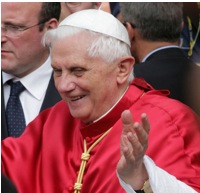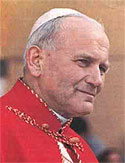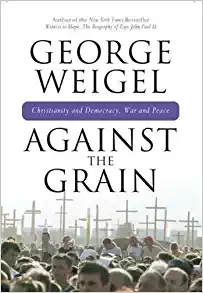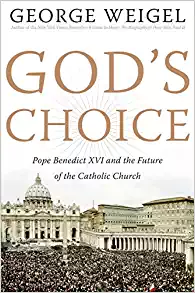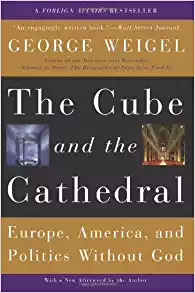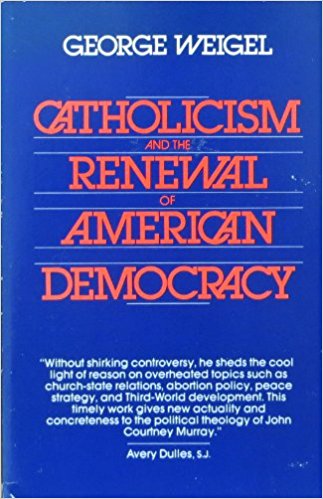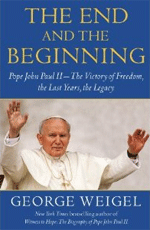 George Weigel's new book, The End and the Beginning: Pope John Paul II -- The Victory of Freedom, the Last Years, the Legacy,
George Weigel's new book, The End and the Beginning: Pope John Paul II -- The Victory of Freedom, the Last Years, the Legacy,The conversation over dinner was wide-ranging, and at one point, after the usual papal kidding about my having written "a very big book," John Paul asked about the international reception of Witness to Hope, his biography, which I had published five years earlier. He was particularly happy when I told him that a Chinese edition was in the works, as he knew he would never get to that vast land himself. As that part of the conversation was winding down, I looked across the table and, referring to the fact that Witness to Hope had only taken the John Paul II story up to early 1999, I made the Pope a promise: "Holy Father," I said, "if you don't bury me, I want you to know that I'll finish your story."According to Weigel, The End and the Beginning covers the last six years of John Paul II's life, including:
It was the last time we saw each other, this side of the Kingdom of God.
- -- Karol Wojtyla's epic battle with communism through the prism of previously classified and top-secret communist files
- -- the Great Jubilee of 2000 and his historic pilgrimage to the Holy Land
- -- September 11th, and the Pope's efforts to frustrate Osama bin Laden's insistence that his war with the West was a religious crusade
- -- the Long Lent of 2002, when the Church in America grappled with the twin crises of clerical sexual abuse and episcopal misgovernance;
- -- John Paul's ongoing efforts to build bridges of dialogue and reconciliation with the Churches of the Christian East
- -- his struggle with illness, "which brought him into at least one 'dark night' spiritually; and his heroic last months, in which his priestly death became, metaphorically, his last encyclical"
Related
- Biographer sees two popes, one mission, by Bruce Nolan )Religion News Service) December 11, 2010.
- The Cold War Pope, by Mary Eberstadt. Policy Review No. 164 (December 2010)
- The Enduring Power of John Paul II’s Example Interview with Michael J. Miller. Catholic World Report October 2010.
- A Pope's Legacy: How John Paul II kindled the fire of evangelism - Interview with Kathryn Jean Lopez (National Review).
- "A pope for all seasons", by Don J. Briel. First Things [subscription required]

